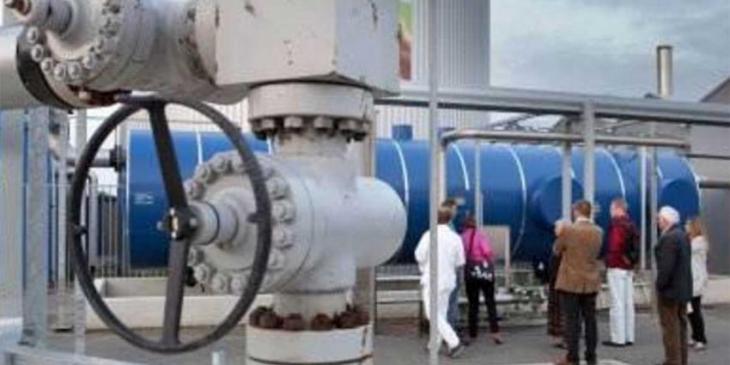Huisman co-signs Green Deal Ultra Deep Geothermal Energy (UDG)
Utrecht/The Hague, 19 June 2017: In the future, 30% of the industrial heat requirement can be delivered by Ultra Deep Geothermal Energy. Today, the Dutch Ministries of Economic Affairs and Infrastructure and the Environment, EBN, TNO and seven consortia of companies have signed the so-called Green Deal Ultra Deep Geothermal Energy (UDG). This is an important step to map the opportunities for UDG in The Netherlands and to provide a basis for further development of this technology. The Green Deal was signed during the annual presentation of the EBN-report 'Focus on Energy' in The Hague, The Netherlands.

Minister Kamp: “The Cabinet strives to reduce the CO2 emissions in The Netherlands to almost zero in 2050. Geothermal Energy, which is heat brought up from the deep underground to the surface, can make an important contribution to that. As a result, we would need less natural gas for our heat supply. The current geothermal energy projects in The Netherlands which we know of and which are under development, are not sufficiently capable to additionally realise the sustainability of high temperature, industrial heat supply. In order to increase the sustainability of heat supply in this sector, it is necessary to use Geothermal Energy at greater depths. The Green Deal Ultradeep Geothermal Energy is an important step to map the potential for UDG in The Netherlands and to contribute to the goals from the Energy Agreement and the Energy Agenda."
The seven consortia each consist of a group of parties which have set as their common target to develop a UDG project on a specific location in The Netherlands in the near future. The seven consortia are represented by Vermilion Energy Netherlands, FrieslandCampina, GOUD, Parenco/QNQ, Geothermie Brabant, Huisman and the Port of Rotterdam. The consortia are spread over three geological regions: Friesland (Heerenveen, Leeuwarden), Central Netherlands (Utrecht, Renkum, East Brabant) and South (Schiedam, Rotterdam).
Extended geological research should offer more clarity first on the extent to which the first consortia can expect warmth of the right temperature and under the right conditions and should provide insight into the most promising approach for the execution of successful drilling operations. Based on this, further development of the projects can take place. It is expected that by 2020, the first results will become visible by means of pilot projects.
In the execution of the Green Deal UDG, EBN plays an important role in addition to the Ministry of Economic Affairs, TNO and the consortia. CEO Jan Willem van Hoogstraten: "Due to our knowledge and expertise of subsurface operations, we can bring relevant knowledge and experience. An important part of this is our portfolio approach. This approach results in learning effects allowing projects to benefit from each other, and significantly reducing risks and cost. That is a large part of our added value. I find it challenging that we can also fulfill a steering role at this stage. "
UDG
Geothermal Energy offers good opportunities to answer the lower temperature heat demand in a sustainable manner. For the sustainability of the higher temperature heat demand, for example in the process industry, it is necessary to apply to geothermal energy on larger depths than usual. UDG is focused on utilising heat at a depth of more than 4000 meters. Potentially, a possible 30% of the industrial heat demand could be provided by UDG. With the execution of this Green Deal, further effect to the transition path for high temperature heat is given. In addition, the realisation of the pilot projects for 2020 will contribute to achieving the renewable energy targets from the Energy Agreement.
